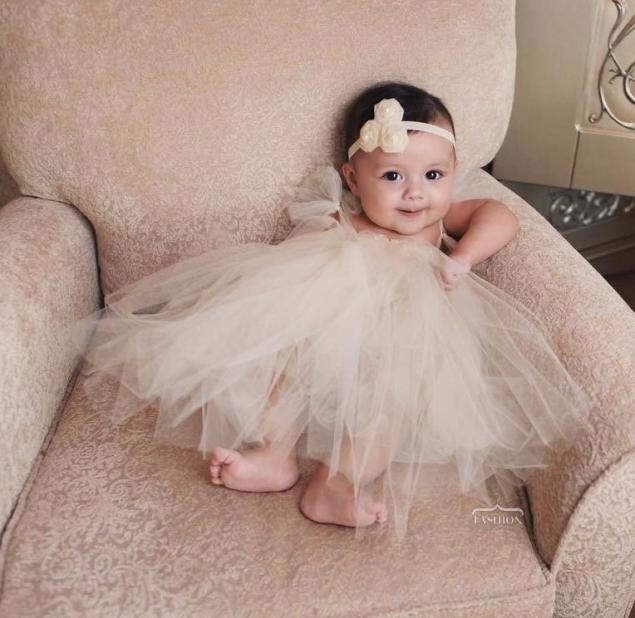612
Children sentenced to love their parents
I promised to write about the principles of interaction with my own children. And I realized that the principles of the principles, but first you need about the foundation. Basis, sorry for banality, it is love and acceptance. It is the fabric of relations.
I'd like to say it simply and without pathos. We all love our children (even if sometimes it seems that it is not so, and we ourselves baffled by the question, and whether we are able to love at all able, each - in its own way). And our kids love us. Whatever the parent, the child still loves him - anything. Once me greatly impressed by the words of AJ Varga: "Children sentenced to love their parents." And it must be very, very hard to dilute this feeling and kill.

As the child understands that he is loved? A good attitude, good looking and kind words, kisses, tactile contact, through the sense of what he needed, he was happy to take care of him. Through parental emotional involvement, interest in his affairs, and to himself, to what he is, what lives and what is important to him.
And the child "embeds" assigns parental feelings, making them his own, internal. It provides an important framework for its good attitude towards themselves and self-confidence.
Still YB Gippenreiter should be read and reread. Her book says the most important words that any parental claims (and their implementation), any disciplinary effect on the child will be successful only when his relationship with his parents there is trust and warmth.
Only in this case. The child easily withstand situational parental weakness (and no injury, they do not cause it), if as a whole it is treated kindly, if he feels that significant and expensive that it is respected. I subscribe to every word here: my mother's experience shows that this is true
. Good attitude to the child - a foundation. The cornerstone. If it is - nothing scary, no short-term "dispute", screams, no small injustice, intemperance and excessive parental reaction to something. It is this "living water" that heals any chips, scratches and cracks.
It is good to respect and build trust, acceptance, secure communication. It seems to me, without taking - do nothing. That's it for all of us who grew up Soviet children really lacked in childhood.
Adoption - this unemotional understanding of what the person next, what are its characteristics, including difficult. This vision of its real, not flat and suitable for us some of their (bright) side, and in the 3D volume, with all the "sharp corners" and restrictions. This inner! consent! the fact that he - that is what it is. And agree to interact with them - such as he is
. Adoption - this is not unconditional and permanent approval. My client (for example) are often confused. Accept the other person - not to allow themselves to knock on the head and silently endure all that is unpleasant and unacceptable. This means, once again, to understand what the person next to you, what are its strengths and limitations. And if it makes you uncomfortable, or (perhaps inadvertently) hurt - to talk to him about it, and not like "taking" and not be silent
. Seeing their children separate, something similar to us, but something quite different, sometimes very difficult. Even more difficult is internally agree that they - the other. They may have a different type of nervous system, different temperament, other reactions, they can capture a sense of where we see no reason for such vivid emotions, it can be terribly important that what we do not pay attention, and, on the contrary, they can remain indifferent, insensitive to what is dear to us.
I already wrote once that for a long time could not feel his daughter. She was always on me unlike - contemplative, humble, very sensitive and very vulnerable. Her mood changed to 10 times a day. She said something to me like, and waited, and I did not understand. I could not see her tears, they drove me to despair. I few years drown yourself in guilt, I do not understand their own child and I can not make her happy.
Apogee came when she went to school. Like smart, talented child, I thought, he must strive to learn from the great. Like me. It should be the same as me! Why is it not so?
We have saved my studies at psihfake Moscow State University, a course on the psychology of individual differences, and my friend, competent psychologist and a strong psihodiagnosta: it just poured into my own knowledge, and I have them greedily, hungrily absorbed. All this has given me a lot and significantly restructure my world.
The main result: I saw the world in all its diversity and equivalence. Because of my emotional reactions completely took the condemnation of someone else, because it's an understanding of why people - these are, and so do. When you can understand and explain (almost) any human behavioral responses, comes acceptance.
Going back to my Dasha ... I do not know how it happened, but it is certainly one of the most powerful moments in my life, I saw her and took another. Low-key, slow, lacking in ambition, calmly relating to their own misses. Not striving to be the best.
I saw next to a wonderful man - beautiful in its otherness. I can not describe in words how much it simplifies our cooperation and has made us closer, open and tolerant to each other. Adoption - a mutual thing. When you give your child the experience of taking, he says to you the same. He is comfortable with your own imperfections, they do not hurt.
And now it seems to me that we should give up all the mental strength just that - the ability to see your child for who he is, and agree with his individual characteristics and traits (understanding, however, that this internal agreement does not cancel the parental requirements and restrictions respect the child's behavior, if it goes beyond the socially acceptable).
Author: Irina Chesnova
I'd like to say it simply and without pathos. We all love our children (even if sometimes it seems that it is not so, and we ourselves baffled by the question, and whether we are able to love at all able, each - in its own way). And our kids love us. Whatever the parent, the child still loves him - anything. Once me greatly impressed by the words of AJ Varga: "Children sentenced to love their parents." And it must be very, very hard to dilute this feeling and kill.

As the child understands that he is loved? A good attitude, good looking and kind words, kisses, tactile contact, through the sense of what he needed, he was happy to take care of him. Through parental emotional involvement, interest in his affairs, and to himself, to what he is, what lives and what is important to him.
And the child "embeds" assigns parental feelings, making them his own, internal. It provides an important framework for its good attitude towards themselves and self-confidence.
Still YB Gippenreiter should be read and reread. Her book says the most important words that any parental claims (and their implementation), any disciplinary effect on the child will be successful only when his relationship with his parents there is trust and warmth.
Only in this case. The child easily withstand situational parental weakness (and no injury, they do not cause it), if as a whole it is treated kindly, if he feels that significant and expensive that it is respected. I subscribe to every word here: my mother's experience shows that this is true
. Good attitude to the child - a foundation. The cornerstone. If it is - nothing scary, no short-term "dispute", screams, no small injustice, intemperance and excessive parental reaction to something. It is this "living water" that heals any chips, scratches and cracks.
It is good to respect and build trust, acceptance, secure communication. It seems to me, without taking - do nothing. That's it for all of us who grew up Soviet children really lacked in childhood.
Adoption - this unemotional understanding of what the person next, what are its characteristics, including difficult. This vision of its real, not flat and suitable for us some of their (bright) side, and in the 3D volume, with all the "sharp corners" and restrictions. This inner! consent! the fact that he - that is what it is. And agree to interact with them - such as he is
. Adoption - this is not unconditional and permanent approval. My client (for example) are often confused. Accept the other person - not to allow themselves to knock on the head and silently endure all that is unpleasant and unacceptable. This means, once again, to understand what the person next to you, what are its strengths and limitations. And if it makes you uncomfortable, or (perhaps inadvertently) hurt - to talk to him about it, and not like "taking" and not be silent
. Seeing their children separate, something similar to us, but something quite different, sometimes very difficult. Even more difficult is internally agree that they - the other. They may have a different type of nervous system, different temperament, other reactions, they can capture a sense of where we see no reason for such vivid emotions, it can be terribly important that what we do not pay attention, and, on the contrary, they can remain indifferent, insensitive to what is dear to us.
I already wrote once that for a long time could not feel his daughter. She was always on me unlike - contemplative, humble, very sensitive and very vulnerable. Her mood changed to 10 times a day. She said something to me like, and waited, and I did not understand. I could not see her tears, they drove me to despair. I few years drown yourself in guilt, I do not understand their own child and I can not make her happy.
Apogee came when she went to school. Like smart, talented child, I thought, he must strive to learn from the great. Like me. It should be the same as me! Why is it not so?
We have saved my studies at psihfake Moscow State University, a course on the psychology of individual differences, and my friend, competent psychologist and a strong psihodiagnosta: it just poured into my own knowledge, and I have them greedily, hungrily absorbed. All this has given me a lot and significantly restructure my world.
The main result: I saw the world in all its diversity and equivalence. Because of my emotional reactions completely took the condemnation of someone else, because it's an understanding of why people - these are, and so do. When you can understand and explain (almost) any human behavioral responses, comes acceptance.
Going back to my Dasha ... I do not know how it happened, but it is certainly one of the most powerful moments in my life, I saw her and took another. Low-key, slow, lacking in ambition, calmly relating to their own misses. Not striving to be the best.
I saw next to a wonderful man - beautiful in its otherness. I can not describe in words how much it simplifies our cooperation and has made us closer, open and tolerant to each other. Adoption - a mutual thing. When you give your child the experience of taking, he says to you the same. He is comfortable with your own imperfections, they do not hurt.
And now it seems to me that we should give up all the mental strength just that - the ability to see your child for who he is, and agree with his individual characteristics and traits (understanding, however, that this internal agreement does not cancel the parental requirements and restrictions respect the child's behavior, if it goes beyond the socially acceptable).
Author: Irina Chesnova
Audrey Hepborn aged - even more beautiful than in the movies
10 mistakes that ruined the life of your daughter
























